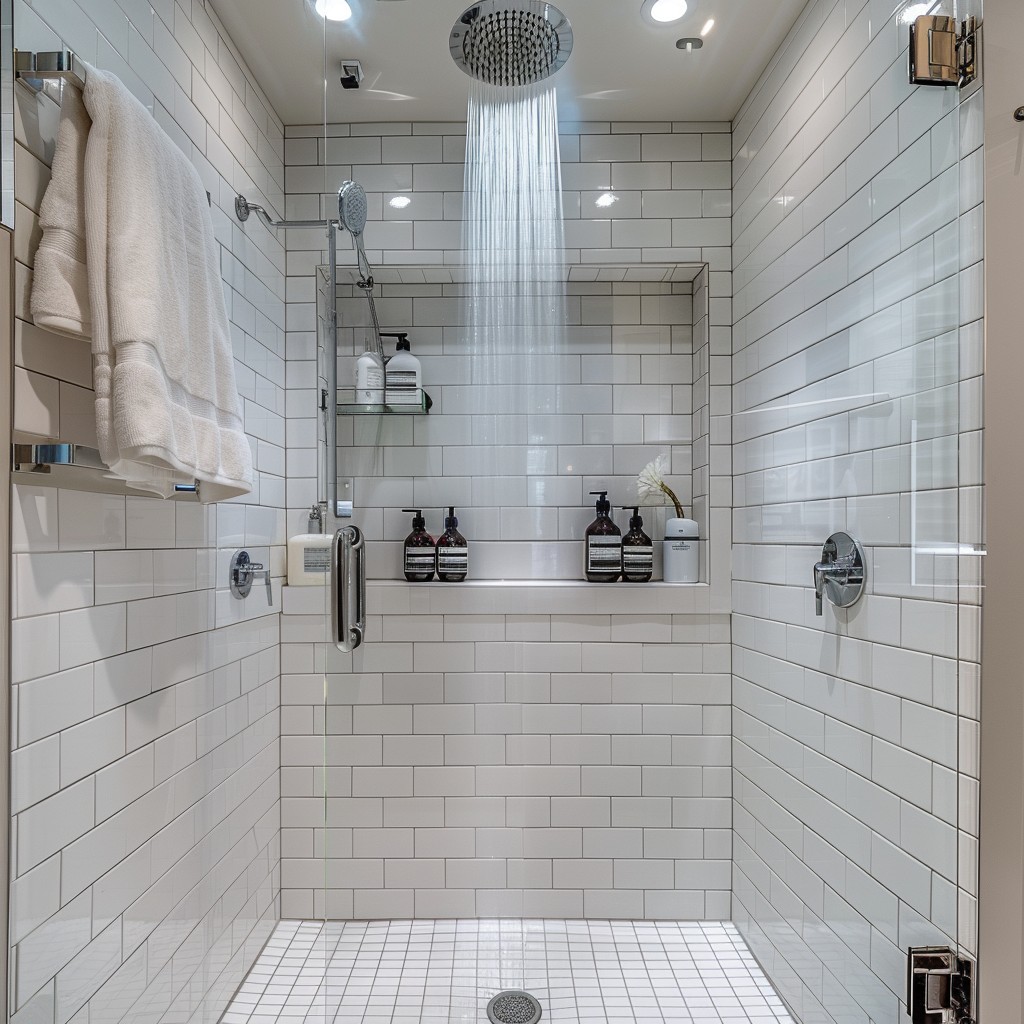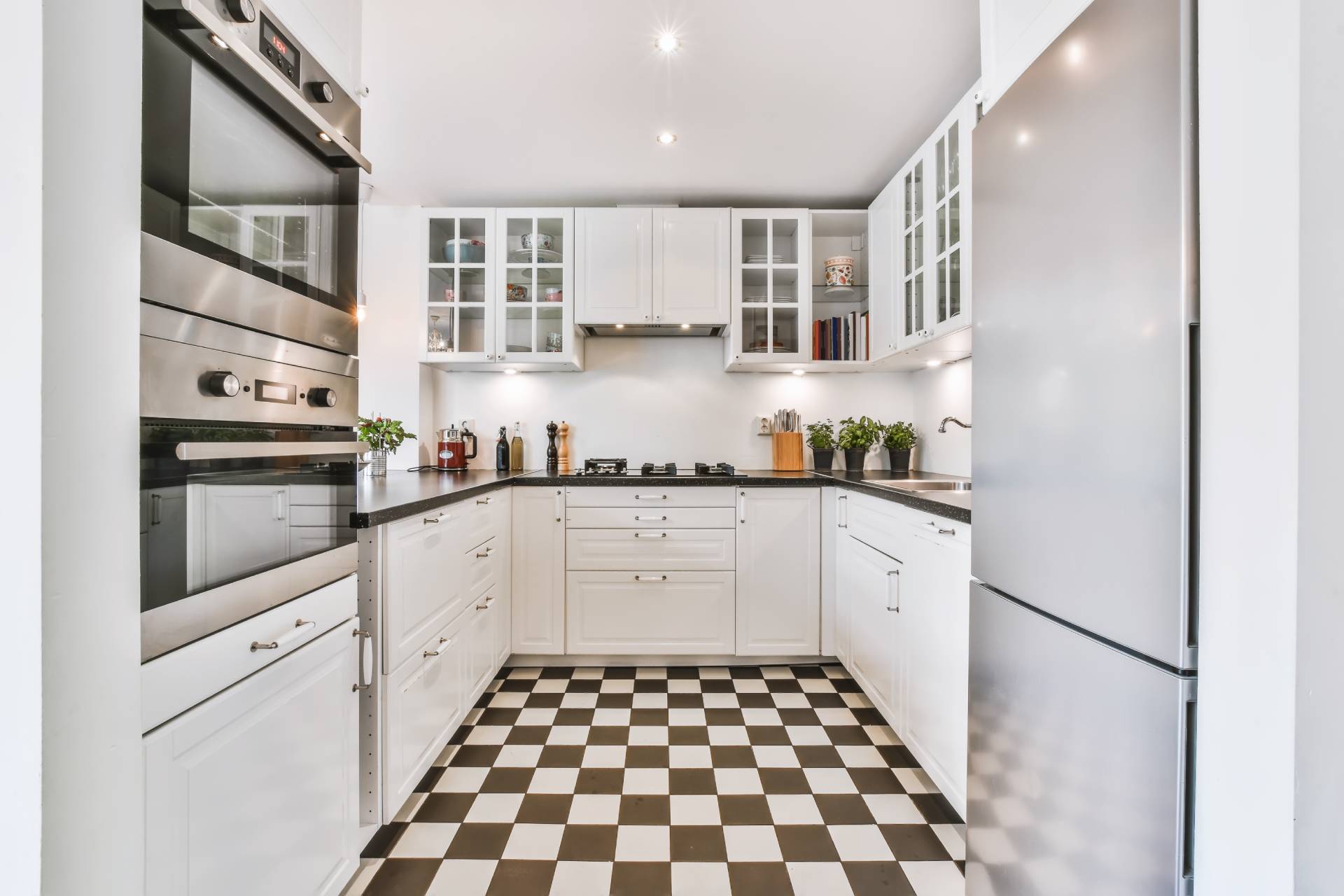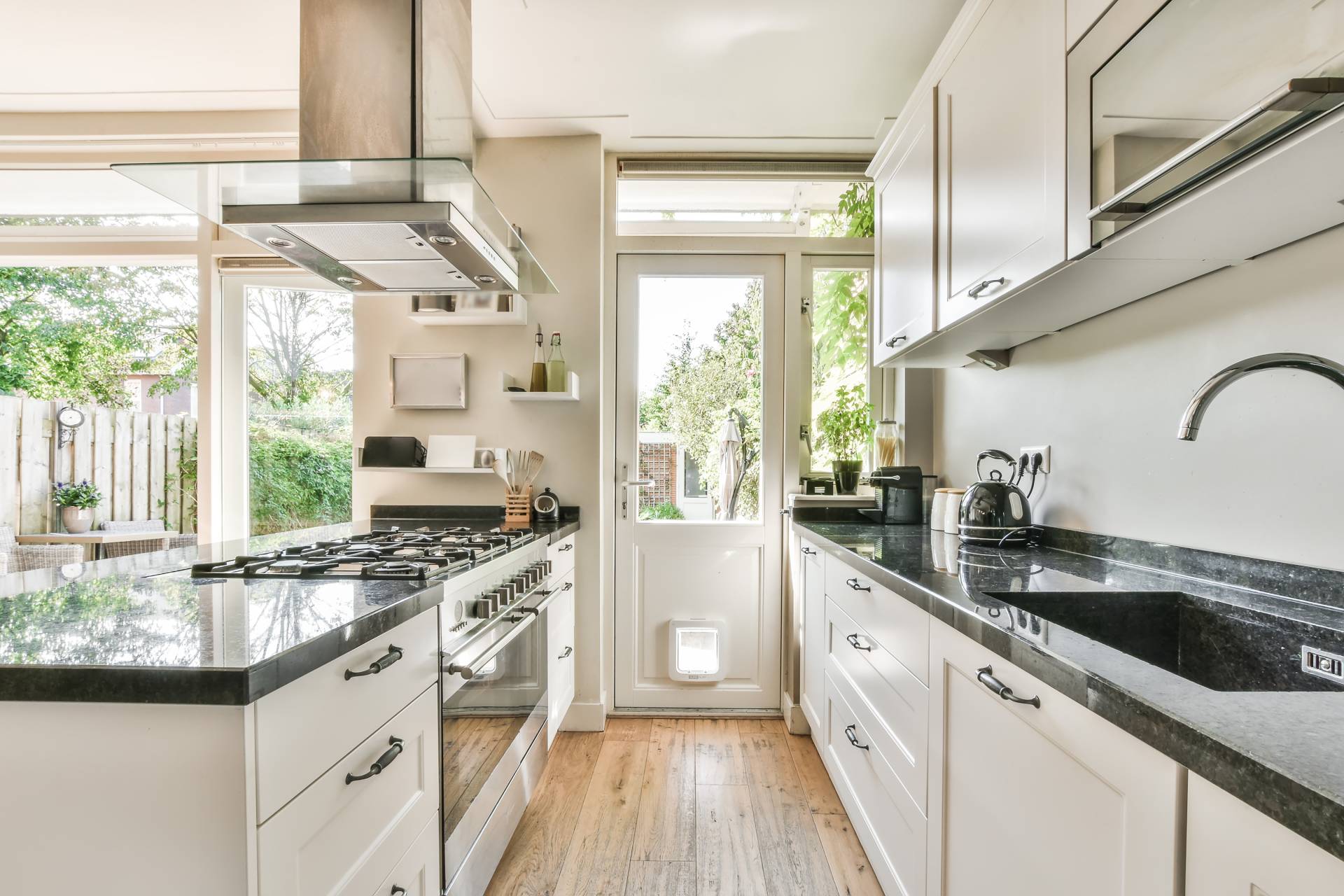Designing a bathroom is one of the most rewarding home improvement projects you can take on. Whether you’re completely remodeling your master bathroom or simply updating a small guest bathroom, selecting the right materials is crucial to creating the look and function you want. The bathroom countertop plays a central role in this design process, as it is both a visual focal point and an area that must withstand frequent use.
This comprehensive guide will explore the pros and cons of various countertop materials available for your bathroom remodel. We’ll also touch on how you can navigate bathroom remodel cost, incorporate innovative bathroom reno ideas, and make smart choices when working with bathroom experts to ensure your renovation goes smoothly.
Granite Countertops: Luxury and Durability Combined
Granite has long been a favored choice for high-end bathroom remodels due to its combination of luxury and durability. When designing a bathroom that combines both elegance and practicality, granite countertops make a powerful statement. Granite’s natural beauty is truly unmatched, and the fact that no two slabs are identical adds a level of uniqueness to each installation. For homeowners looking to elevate their bathroom remodel, granite provides an excellent option for creating a sophisticated, polished look that’s also built to last.
The durability of granite is one of its most significant advantages. It is one of the hardest natural stones available, meaning it is highly resistant to scratches, heat, and general wear. In a bathroom setting, where countertops are often exposed to water, moisture, and humidity, granite’s resistance to these elements ensures it will last. If you’re undertaking a bathroom remodel, choosing granite can provide the long-term durability you need while maintaining its pristine appearance. Granite also adds substantial value to your home, making it an investment that may increase your property value. This makes it an ideal material for those considering resale potential or designing a luxury bathroom that will stand out to potential buyers.
However, the luxury of granite comes with a price. Bathroom remodel costs can quickly rise when choosing granite due to its expensive nature. The material itself is costly, and the installation process requires a high level of expertise, which can further drive up the bathroom remodel pricing. Granite is heavy, and proper installation is crucial to avoid structural issues, meaning you will likely need to work with professional bathroom renovation contractors near me to ensure it’s done correctly. Additionally, granite requires regular sealing to prevent moisture absorption and stains, adding another layer of maintenance to your project. Failure to reseal granite regularly can lead to damage or discoloration, which means that while it may be durable, it isn’t entirely maintenance-free.
When deciding on granite for your bathroom remodel, you’ll need to weigh the costs of installation and maintenance against its beauty and longevity. It’s a great choice if you are looking for a high-end finish and are willing to invest both in the initial bathroom remodel cost and the ongoing maintenance.
Quartz Countertops: Engineered Stone for Modern Appeal
Quartz countertops have surged in popularity over the years, particularly for those designing a bathroom with a contemporary, low-maintenance design in mind. Quartz is an engineered stone, meaning it’s created by combining crushed natural quartz with resins and polymers. This results in a non-porous, highly durable material that’s perfect for bathrooms where hygiene and ease of cleaning are top priorities.
One of the most significant benefits of quartz is that it is virtually maintenance-free. Unlike natural stones such as granite or marble, quartz does not require sealing. The non-porous nature of quartz means that it resists moisture, bacteria, and stains, which is a critical advantage in a bathroom setting. The material’s ability to resist these elements makes it easy to keep clean and ensures that your countertop will look pristine with minimal effort. This characteristic is particularly beneficial for homeowners who are looking for a countertop that can withstand the rigors of daily use without requiring constant attention. For those interested in bathroom reno ideas, quartz offers a variety of design possibilities. Quartz countertops come in a wide range of colors, patterns, and finishes, allowing homeowners to customize their bathrooms with a look that fits their aesthetic preferences.
Despite its many benefits, quartz countertops can be expensive. When considering your bathroom remodel cost, it’s important to note that the price of quartz is often comparable to that of granite, particularly for high-end designs or customized options. Bathroom remodel pricing will also vary depending on the complexity of the installation. Although quartz is durable, it is less resistant to heat than granite, so it’s important to avoid placing hot objects, such as curling irons or straighteners, directly onto the countertop. While quartz is a strong material, it can be prone to damage from high heat exposure, which may be a concern in a bathroom environment where styling tools are frequently used.
If you are seeking a bathroom countertop that is both low-maintenance and stylish, quartz offers an excellent balance of durability and design flexibility. However, keep in mind the bathroom remodel cost when opting for quartz, as it can be on the pricier side of the spectrum.
Marble Countertops: Timeless Luxury
For those looking to create a bathroom that exudes timeless elegance, marble is the go-to choice. Marble has been a staple in high-end design for centuries and is often associated with luxury and opulence. Its classic beauty, with natural veining and intricate patterns, makes it a standout feature in any bathroom. Whether you are designing a traditional, modern, or transitional bathroom, marble’s sophisticated appeal can elevate the space.
The aesthetic value of marble is undeniable, with each piece offering unique veining and patterns that add a level of sophistication and refinement to the bathroom. If you’re looking to design a bathroom that feels like a luxurious retreat, marble countertops can help you achieve that vision. In addition to its beauty, marble is also heat resistant, making it suitable for bathrooms where hot styling tools or other heated objects may come into contact with the surface. Its natural coolness can also be beneficial in the bathroom, especially in warmer climates where homeowners prefer a cooler surface for activities such as applying makeup or skincare.
Despite its beauty and benefits, marble is not without its drawbacks. The most significant downside to marble countertops is the high level of maintenance required. Marble is porous, which means it can absorb moisture, oils, and stains. Over time, this can lead to discoloration or damage if not sealed properly. Regular resealing is necessary to maintain the countertop’s aesthetic and protect it from the constant exposure to water in the bathroom. As part of your bathroom remodel, you’ll need to factor in the additional cost of sealing and maintaining the marble countertop. Another concern is that marble is relatively soft compared to granite and quartz, which means it is more susceptible to scratching, chipping, or staining. For homeowners who don’t mind putting in the effort to maintain a high-end look, marble can be an excellent choice for achieving a luxurious bathroom.
However, for those seeking a low-maintenance, long-lasting option, marble might not be the best fit. The bathroom remodel cost for marble can also be quite high, especially when factoring in installation and regular upkeep. It’s important to consider your long-term commitment to maintaining the material before making this investment.
Solid Surface Countertops: Seamless and Practical
Solid surface countertops, such as those made from materials like Corian, are engineered from acrylic, polyester, or a blend of both. These countertops are popular due to their smooth, seamless design and versatility in terms of color and shape. They are a practical option for homeowners looking for a sleek, modern look with minimal maintenance.
One of the most notable features of solid surface countertops is the seamless design. The lack of visible seams creates a clean, uniform appearance that suits contemporary and minimalist bathroom reno ideas. The material is also non-porous, making it resistant to staining and mold growth, which is ideal for a bathroom where moisture is a constant factor. Solid surface countertops are easy to maintain, as they can be cleaned with soap and water without worrying about potential damage. For homeowners who are looking for a low-maintenance countertop, this material offers a convenient and practical solution.
However, solid surface countertops are not immune to drawbacks. While they are generally resistant to stains, they are more prone to scratching and denting than materials like granite or quartz. If you are planning on using your countertop for tasks like shaving, styling hair, or handling heavy objects, you may notice marks or damage over time. Another potential downside to solid surface materials is that, while they can be customized in a wide range of colors and patterns, they often lack the natural look and high-end appeal of stone materials like granite or marble. For homeowners designing a bathroom with a natural or luxurious aesthetic in mind, solid surface countertops might not offer the desired effect.
The bathroom remodel cost for solid surface countertops is generally lower than that of granite or marble, which makes it a more budget-friendly option for many homeowners. However, it’s important to consider your long-term needs and the level of durability required when choosing this material.
Wood Countertops: Rustic Charm
Wood countertops, often referred to as butcher block, bring a warm, natural aesthetic to any bathroom. While they are more commonly found in kitchens, wood countertops can also be a unique and charming addition to a bathroom, particularly in rustic, farmhouse, or eclectic designs. Wood offers a natural beauty that cannot be replicated by stone or engineered materials.
The warmth and texture of wood countertops can create a cozy, inviting bathroom that exudes character and charm. If you’re looking to design a bathroom that feels more relaxed and homey, wood may be the right material for you. Additionally, wood is renewable, meaning that if it gets scratched or damaged, it can often be sanded down and refinished, giving it a longer lifespan than some other materials. Wood is also relatively affordable compared to natural stone options like granite and marble, which makes it a good choice for homeowners who are looking to keep bathroom remodel cost in check.
However, wood is not the best choice for every bathroom. It is a porous material, which means that it can absorb moisture over time and may warp or swell if not properly sealed. Wood countertops require regular maintenance, including sealing and oiling, to ensure they stay protected from water damage. Without proper care, wood countertops can degrade quickly in the high-moisture environment of a bathroom. Additionally, wood is not as durable as stone, meaning it can scratch and dent more easily. For bathrooms that see heavy use, wood might not be the best fit.
If you are willing to put in the effort to maintain a wood countertop and love the look of natural, rustic materials, wood can be a beautiful addition to your bathroom renovation. However, it does come with a higher level of maintenance compared to other materials.
Laminate Countertops: Budget-Friendly and Practical
Laminate countertops are one of the most affordable options available for bathroom remodels. Made from layers of plastic laminate fused to particleboard, laminate countertops come in a wide variety of colors, patterns, and finishes. For homeowners on a tight budget, laminate offers an attractive solution that meets both functional and aesthetic needs without breaking the bank.
Laminate countertops are easy to clean and maintain, requiring only a simple wipe-down with soap and water to keep them looking fresh. They are also non-porous, so they won’t absorb moisture, which makes them a suitable choice for bathroom environments. Laminate is available in an almost endless variety of styles, so homeowners can find a design that suits their bathroom reno ideas. From sleek, modern finishes to laminate that mimics the look of stone, there are options to fit virtually any design aesthetic.
The main downside of laminate countertops is their durability. While they are relatively resistant to staining, they are prone to scratching, chipping, and burning, especially if hot items are placed on them. Once damaged, laminate countertops are difficult to repair and often need to be replaced. Laminate also tends to look less luxurious than natural stone options like granite or marble. If you’re designing a bathroom with a high-end or luxurious feel in mind, laminate may not be the ideal choice.
Despite these limitations, laminate countertops offer an affordable, practical option for homeowners who are looking to keep bathroom remodel cost down while still getting a functional, attractive surface. They are especially useful for small bathroom remodels where budget constraints are a significant consideration.
Conclusion: Choosing the Right Bathroom Countertop Material for Your Remodel
When it comes to designing a bathroom, selecting the right countertop material is one of the most important decisions you’ll make. From the timeless elegance of marble to the budget-friendly practicality of laminate, there are a wide range of options to choose from. The key is to carefully consider your bathroom remodel cost, bathroom remodel pricing, and long-term maintenance requirements before making a final decision.
Working with bathroom experts or bathroom renovation contractors near me can help ensure that you select the right material for your space and get the most out of your investment. Whether you’re interested in bathroom renovations near me or looking for innovative bathroom reno ideas, understanding the pros and cons of each material will allow you to make a more informed choice. Whether you’re aiming for a luxurious, high-end look or a more budget-conscious renovation, there’s a countertop material that will fit your needs and enhance the beauty and functionality of your bathroom for years to come.




